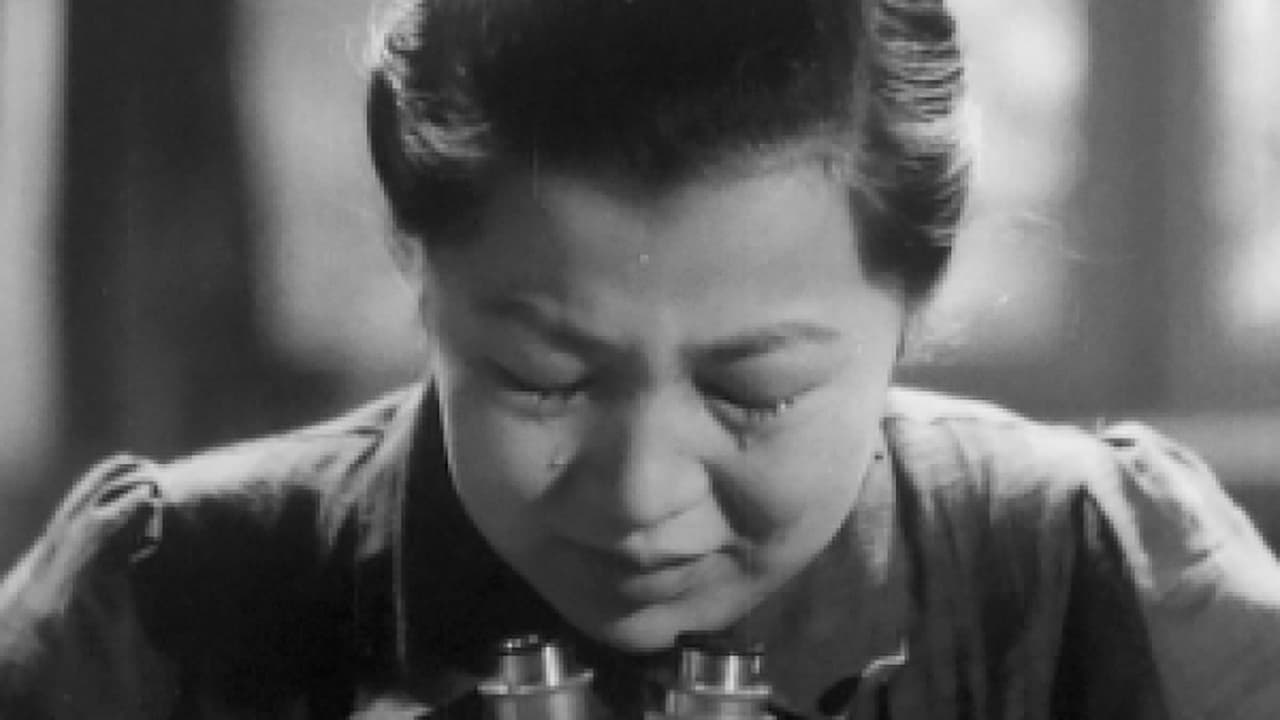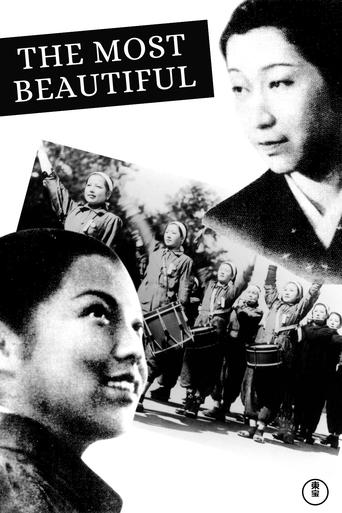

Waste of time
... View MoreSorry, this movie sucks
... View Moren my opinion it was a great movie with some interesting elements, even though having some plot holes and the ending probably was just too messy and crammed together, but still fun to watch and not your casual movie that is similar to all other ones.
... View MoreI have absolutely never seen anything like this movie before. You have to see this movie.
... View MoreA curious film from Kurosawa, given what came later, this is a nationalist film about a group of young women who are working at an optical instruments factory who are given the task to greatly increase productivity for the good of the country and the war effort. It shows them rarely at play, mostly very focused at work. Takako Irie plays the dorm mother, a somewhat sympathetic character. This film is more inherently Japanese than most of Kurosawa's later work, its almost a propaganda film. However, there is also some heart in the characters, and that is what makes it a recommended film. You sense the young ladies anguish over being sick and having family difficulties, making them unable to work. So, not essential viewing but still watchable and Kurosawa fans should check it out.
... View MoreMost Beautiful, The (1944) ** (out of 4)Interesting WW2 era film about a factory in Japan who asks their men to raise production by 100% and then ask the women to do 50%. At first the women are insulted by not being asked to do as much as the men but they soon find out that this raise in production is going to test every bit of their soul both physically and mentally. This early Kurosawa film isn't a good one but it is interesting and does have a few moments where the director does something great. What I found most interesting about the film is how different it is from the WW2 films that were being produced in Hollywood at the time. There's no question that this is a propaganda piece for the Japanese people but it's interesting to see how their moral was attempted at being raised. Most of the American WW2 pictures were "fight, fight, fight" and you can say that about this film but the difference is that the fight is mostly a personal drama with each of the women. Then being ashamed that they can't produce more for their country. Being ashamed that they are sick and can't do their part for a day. Ashamed that their parents might learn they were sick and couldn't do the job. The film does a pretty good job at building up these dramas but sadly none of their stories are strong enough to make the film be a total success. I think most of the blame has to go towards the screenplay that is a bit too over dramatic during certain scenes and there are some major issues with some of the performances. It's obvious Toho didn't give Kurosawa much of a budget but the director shows that he can handle the personal drama quite nicely. The most impressive sequence in the film happens early on when the women are told that production is going to be raised. This somewhat long sequence shows us many of the women talking amongst each other and Kurosawa builds up us thinking they're unhappy about the raise but the way he explains what they're really upset about was quite powerful. The film runs 85-minutes and even at this short pace the film begins to run out of gas and really drag along towards the end. Fans of Kurosawa will probably want to check this out but others will probably hit the stop button early on.
... View MoreIchiban utsukushiku (1944) 'THE MOST BEAUTIFUL' is Akira Kurosawa's tribute to Japanese Women who supported the war effort (WWII) at the 'Home-Front'. It is analogous to films made in other countries at that time. The nations that participated in the conflict all called upon Women too help in the manufacturing process. Some successfully like Great Britain, Soviet Russia and the U.S.A. Others like China, Fascist Italy or Nazi Germany less so, with Imperial Japan falling in between. Not from lack of effort, but of resources.Like LETTERS FROM IWO JIMA (2006) the film shows the war from the Japanese perspective. This is a propaganda film. That does not invalidate its message compared with the other participants in the conflict, it is just another point of view, made in wartime. The Women work in a optical factory which could pass for a 'Dickensian Workhouse'. Their work is important and they know it. The pressure of increased productivity with limited resources is clearly shown. It effects them all emotionally, physically and psychologically. The Men of the factory for the most part are unseen drones, except for the managers of the plant. They take a sensitive interest in the well being of their Female staff, without taking advantage of them. The War is largely unseen, but you know it is out there and getting closer all the time. The Director could see the end was coming, even if the Imperial General Staff could not.The principal cast of Women actors are largely unknowns whose careers were brief before and after this film. They are all convincing in their roles and give believable characterizations. The only 'Star' recognizable too Western audiences would be the great TAKASHI SHIMURA. SHIMURA was a 'jake of all trades' for the TOHO Studios, Japan. His acting range spanned Business Men, Criminals, Detectives, Samurai and Scientists. Films of note, SHICHININ NO SAMURAI (1954) 'The Seven Samurai', GOJIRA (1954) 'Godzilla', CHIKYU BOEIGUN (1957) 'The Mysterians' and YOJIMBO (1961) 'Yojimbo, The Bodyguard'.Those who have TCM or a well stocked local Library can take advantage of the films of AKIRA KUROSAWA and they should.
... View MoreThe best propaganda movie ever made. Every element of Japanese artfulness has gone into this picture. The finest in visual composition and dramatic exposition have both been harnessed to create this film, but it is not art but propaganda. It's impossible not to regard this film without realizing that this was meant to manipulate the population to suffer and sacrifice in order for the war machine to fight, kill and conquer. Compare Ichiban Utsukushiku to the German Jew Suss or the un-released Titanic or the American Hangmen Also Die or Mrs. Miniver or any of the combat films made by the waring nations and they are dreadfully crude by comparison. Maybe it can only be approached by something like Minnelli's The Clock for overall design concept and subtlety of purpose. Then again The Clock isn't full blown propaganda like Kurosawa's Ichiban Utsukushiku. How could the director, Kurosawa, (it was his second credited film) not become the great International master he became?
... View More